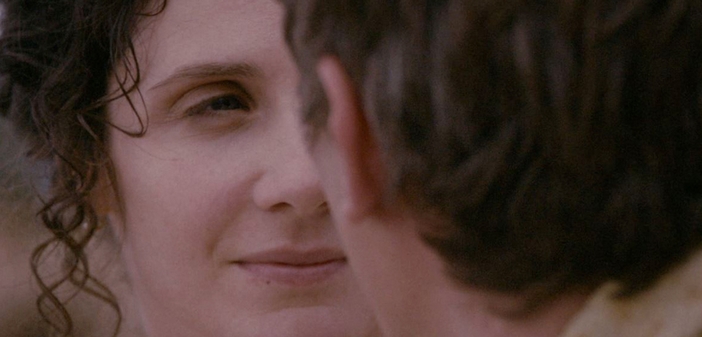Normandy, 1819. Just out of the convent where she studied, Jeanne Le Perthuis des Vauds, a young woman overly protected and still full of childhood dreams, marries Julien de Lamare. Very quickly, he reveals himself to be stingy, brutal, and unfaithful. Jeanne’s illusions then begin to gradually disappear.
“Life, you see, is never as good or as bad as you think”: generations of readers have discovered Maupassant’s book in high school, its final line, and the series of misfortunes that befall the heroine, a 19th-century provincial aristocrat.
The quasi-documentary social chronicle gives way to an adaptation of Maupassant’s first eponymous book, set in 1819. A story supposedly spanning 30 years.
Stéphane Brizé adapts it with a clear stance: through large cuts of ellipsis, he omits the significant events of the story, which spans from adolescence to old age. He keeps only the moments of lesser intensity, before or after the dramas.
This gives the French director the chance to let a lyrical breath infuse his cinema, allowing him to indulge in all sorts of sophisticated propositions.
Une Vie sticks to a minimum of dialogue and grants significant importance to sound. The sound of the wind rustling the leaves, the sea, the crackling fire. Naturalism becomes magical, unreal. Une Vie is to be heard and watched.
This lacunar approach builds around its avoidances. Here, the subtraction deprives the narrative of its depth, even its meaning. The choice of almost nothing leads to a succession of scenes in a strange apathy, between the living room and garden, winter and summer. Jeanne (Judith Chemla) seems faded even before the betrayals, mourning, and debts.
What gives, in the most inspired moments, an absolutely dizzying dimension to the story. You find yourself sucked into a whirlwind of conflicting emotions, striking revelations, as if life were an unstoppable steamroller, solemnly exposing its fate-laden agenda.
Stéphane Brizé clearly relies on the expressiveness of lights, sounds, and intonations to bring some thrill.
Judith Chemla remains divine in her role. Stéphane Brizé finds a woman in the same vein, capable of expressing herself despite being deprived of lines. Rare are the actors capable of channeling so many emotions while remaining anchored in a natural and minimalistic performance. The film’s greatest achievement is capturing on her face, without a word, the power of events.


